Chapter 3: Putin’s Russia, an authoritarian kleptocracy with a twist
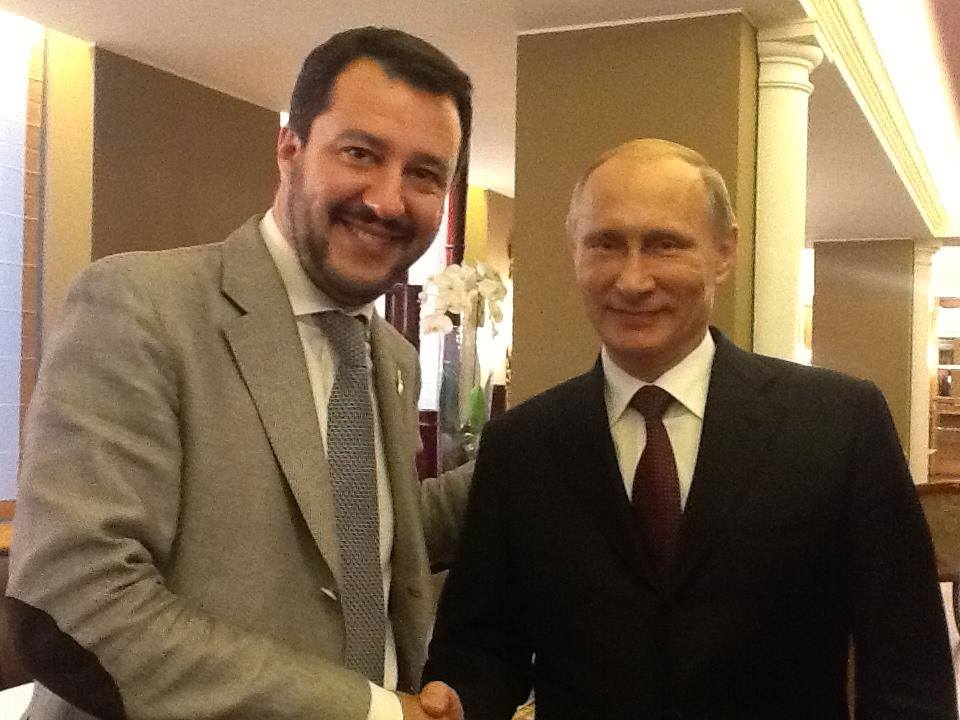
The leader of the Italian far-right Northern League Matteo Salvini (left) and Vladimir Putin (right) posing for photos during a break at the Asia-Europe summit in Milan on 17 October 2014. One could not imagine such a picture during Putin’s first presidential term (2000-2004).
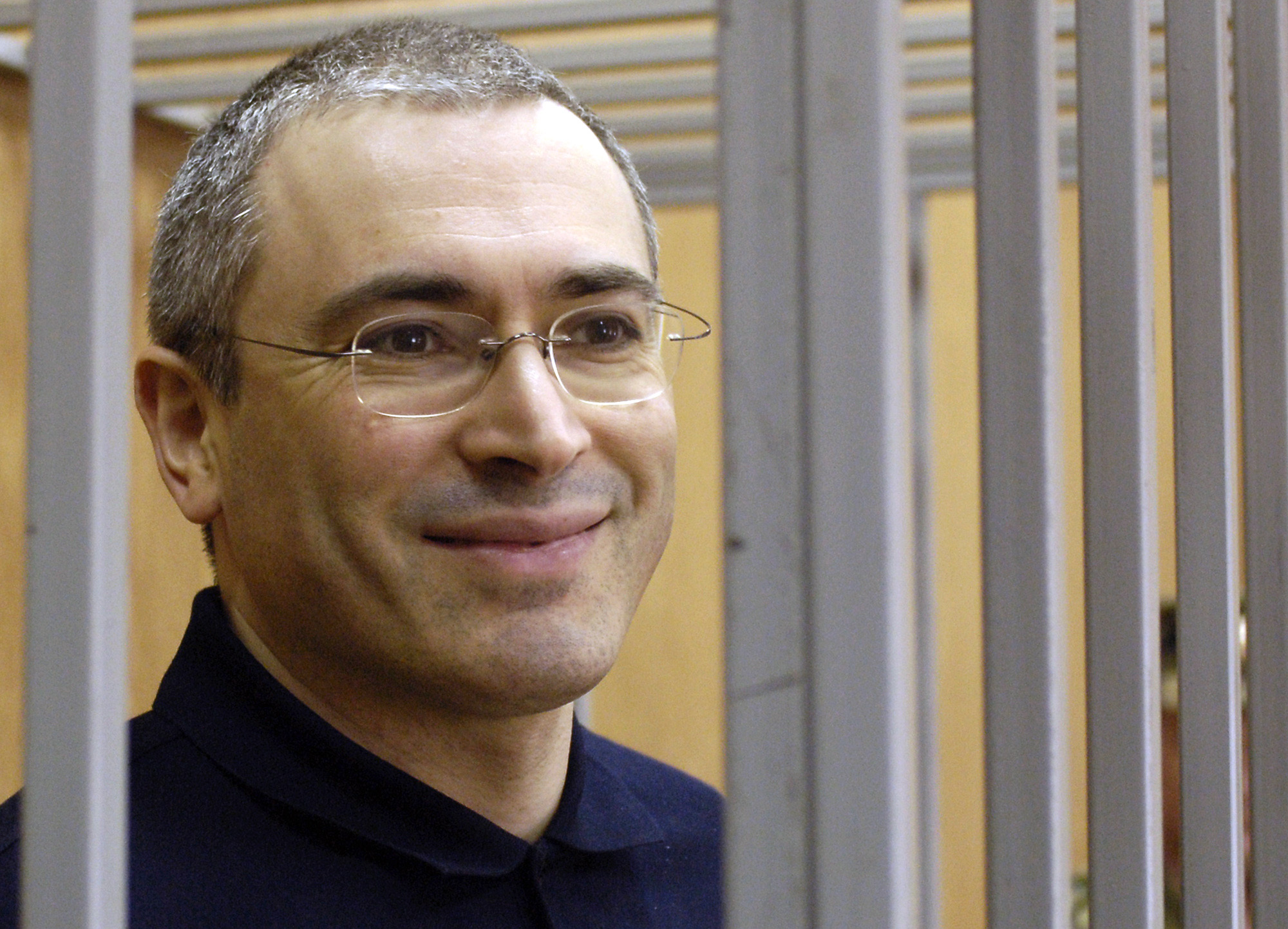
Mikhail Khodorkovsky, arrested at the end of Vladimir Putin‘s first presidential term, was the last prominent oligarch to be crushed by the regime for supporting political forces opposed to Putin.

Vladimir Putin (right) and Igor Sechin (left), one of the most powerful siloviki and a member of Putin’s inner circle.
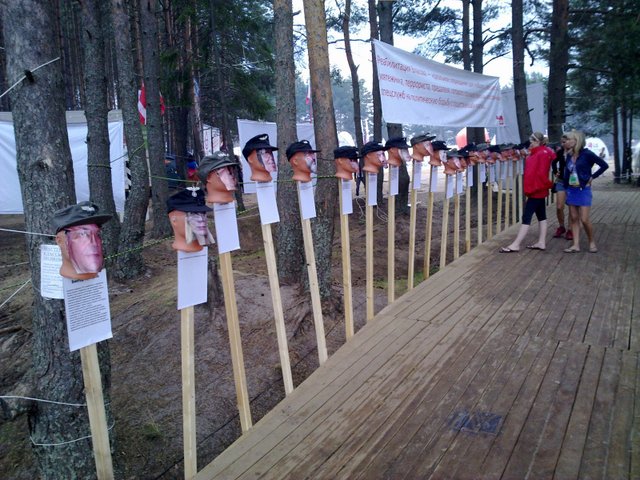
The “anti-fascist” youth movement “Ours”, which was founded in 2005 to thwart the imaginary threat of a “colour revolution” in Russia, demonises independent journalists, human rights activists and opposition politicians as “fascists”.
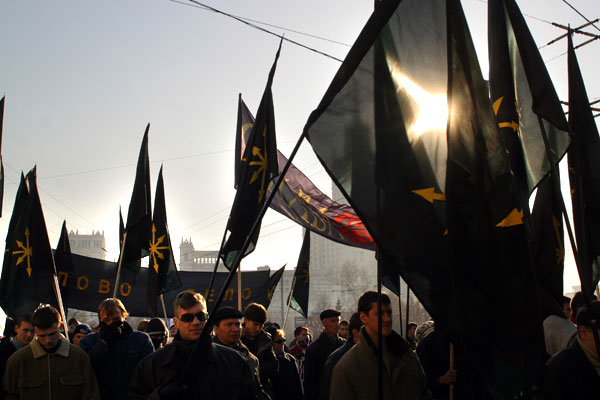
The march of the Eurasian Youth Union, created by Russian fascist Aleksandr Dugin in 2005 to fight against a “colour revolution” in Russia.
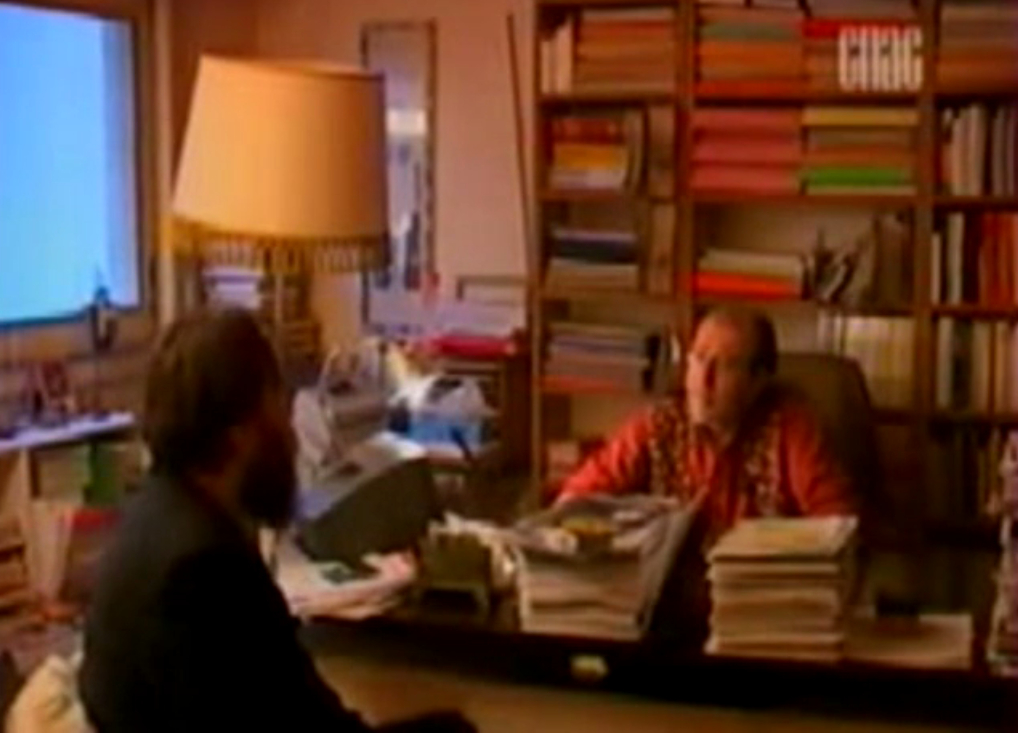
Russian fascist Aleksandr Dugin (left) interviews French New Right thinker Alain de Benoist (right) for the Russian Orthodox TV Channel “Spas” in 2005.
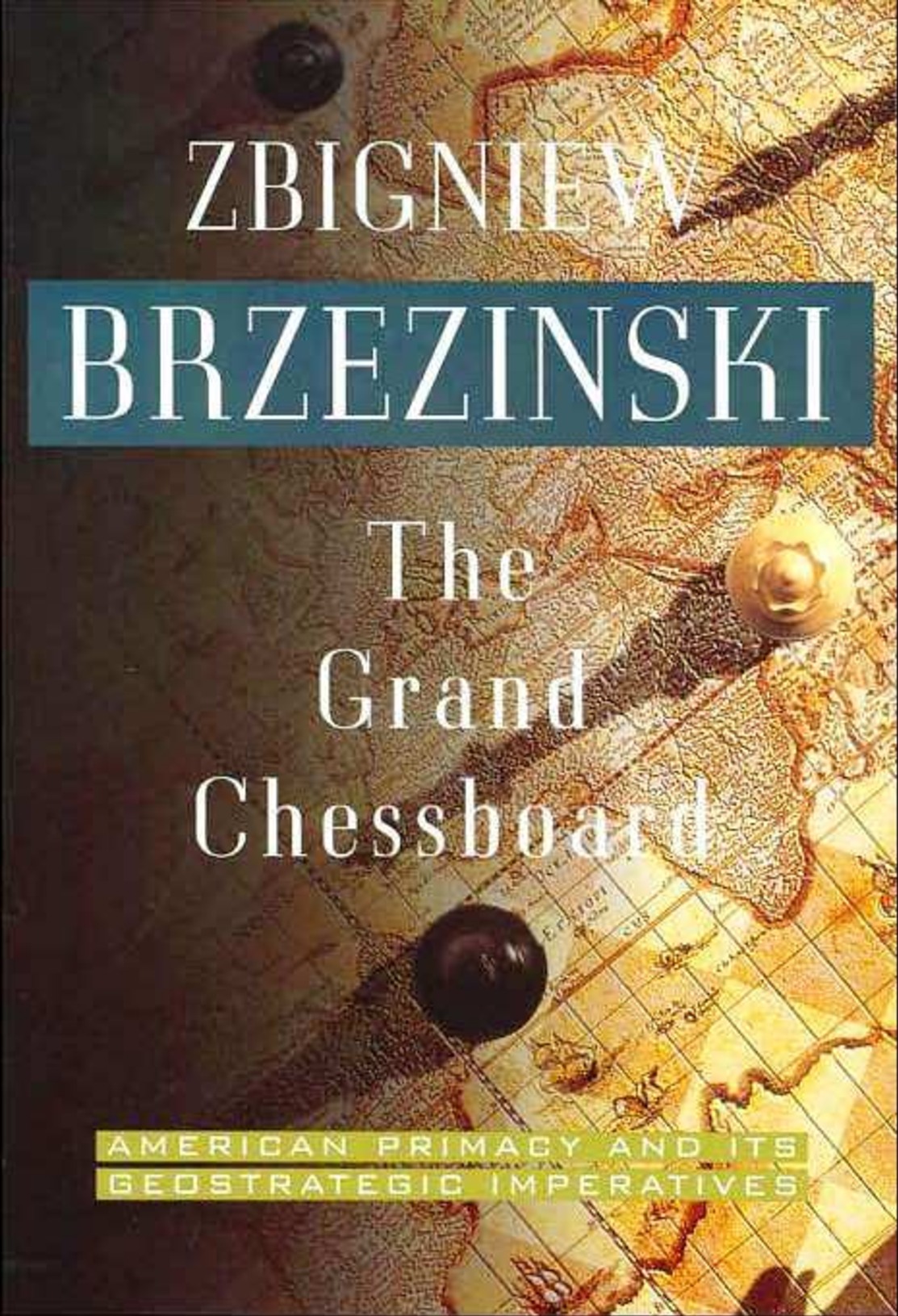
Zbigniew Brzezinski‘s book The Grand Chessboard (1997) was and still is considered by the Russian ruling elites as an American plan to undermine Russia.
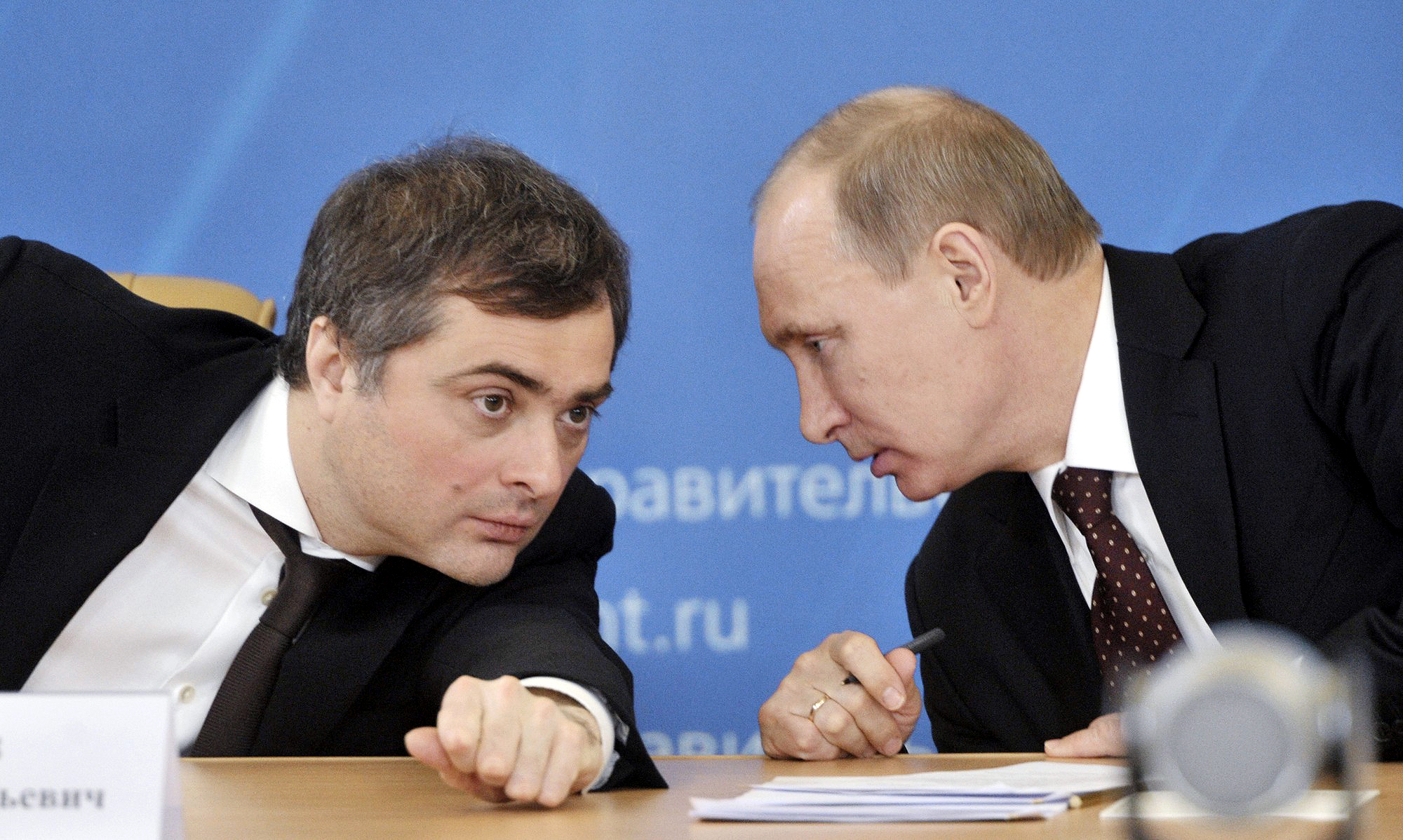
First Deputy Chief of Russia’s Presidential Administration Vladislav Surkov (left) contributed to the legitimisation of anti-Westernism in the mainstream public discourse in Russia.
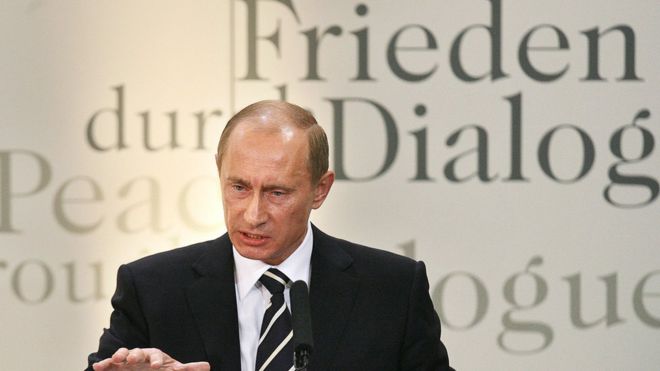
Speaking at the 43rd Munich Conference on Security Policy in 2007, Vladimir Putin urged the US to review the rules of the game established after the end of the Cold War.
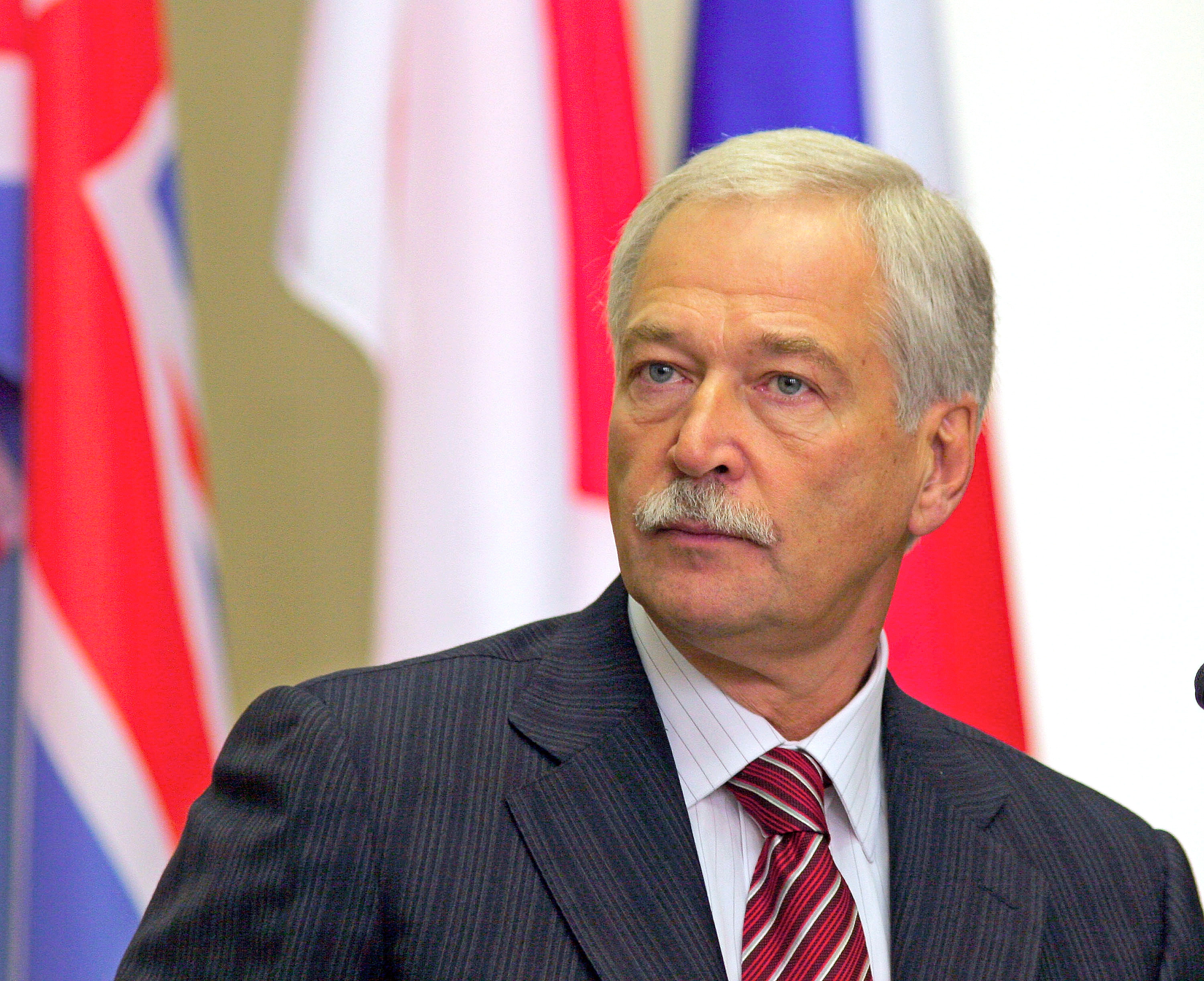
Boris Gryzlov, Chairman of the Supreme Council of the ruling “United Russia” party, declared that the ideology of the party was “Russian conservatism”.
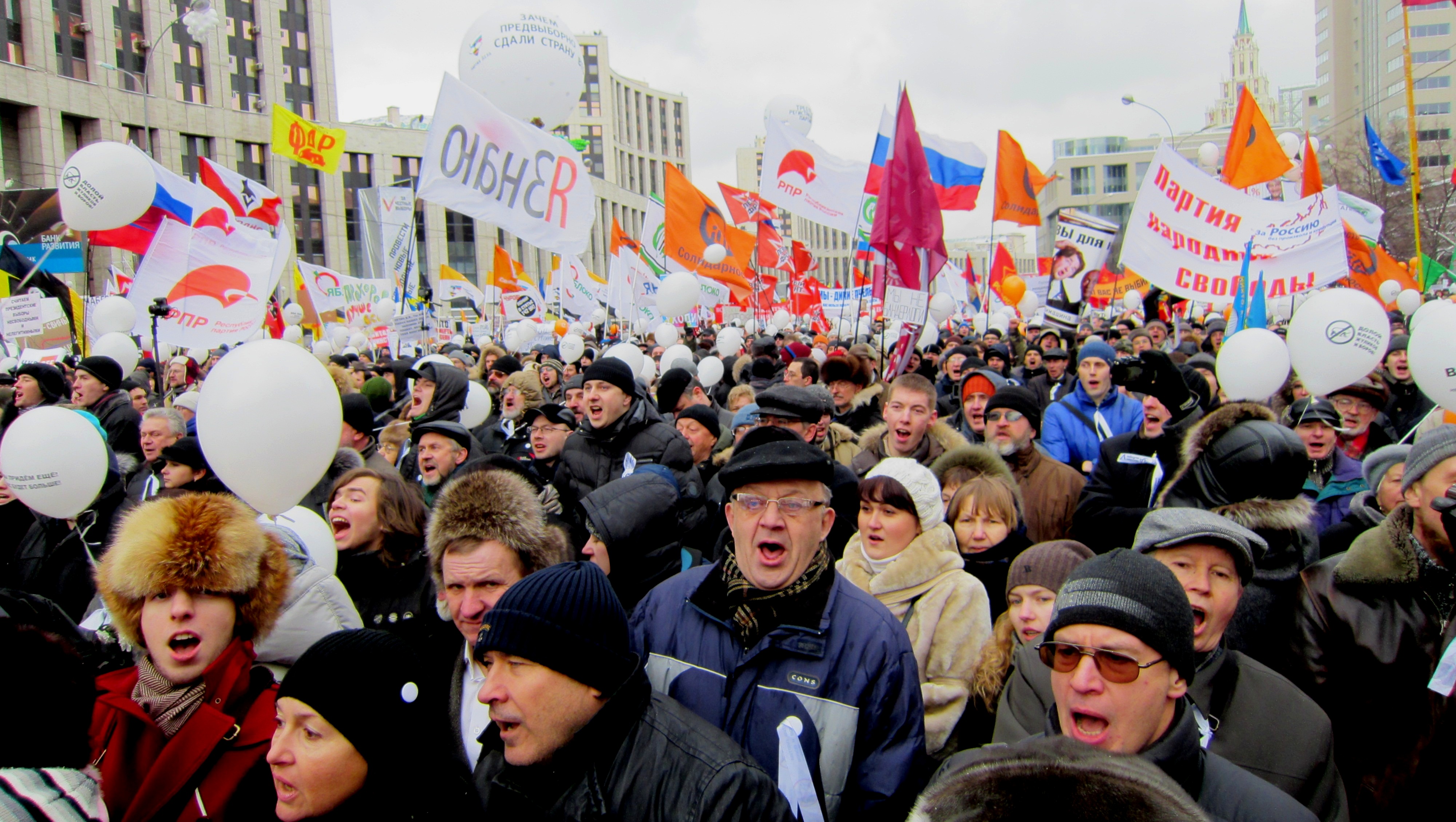
Anti-Putin protests that started after the fraudulent parliamentary elections in December 2011 became arguably the most serious challenge to Vladimir Putin‘s regime since he assumed power in 2000.
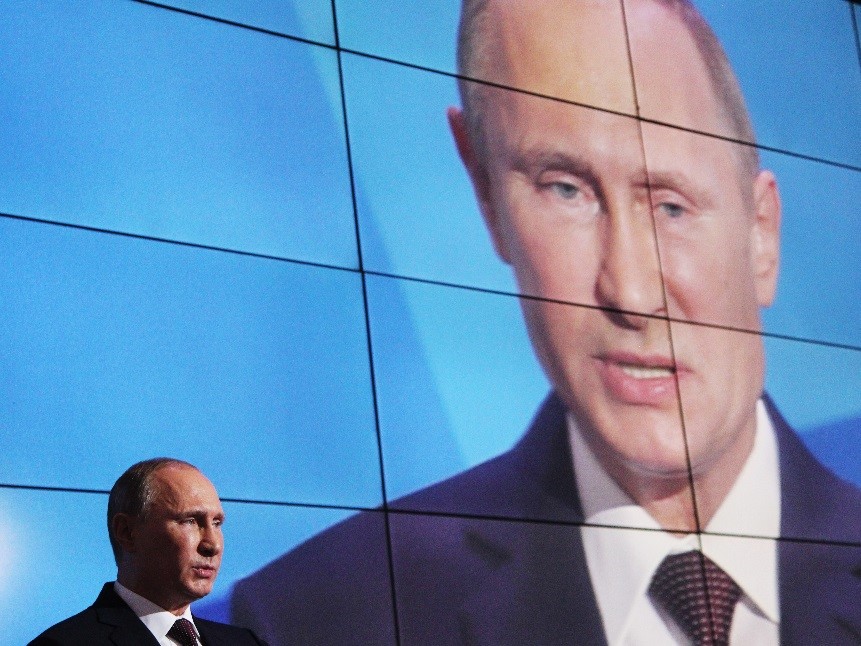
Speaking at a meeting of the Valdai International Discussion Club in 2013, Vladimir Putin argued that Europe and the West in general were decadent, plagued by same-sex marriages, moral crisis, failing multiculturalism and disrespect for the rights of the majority.
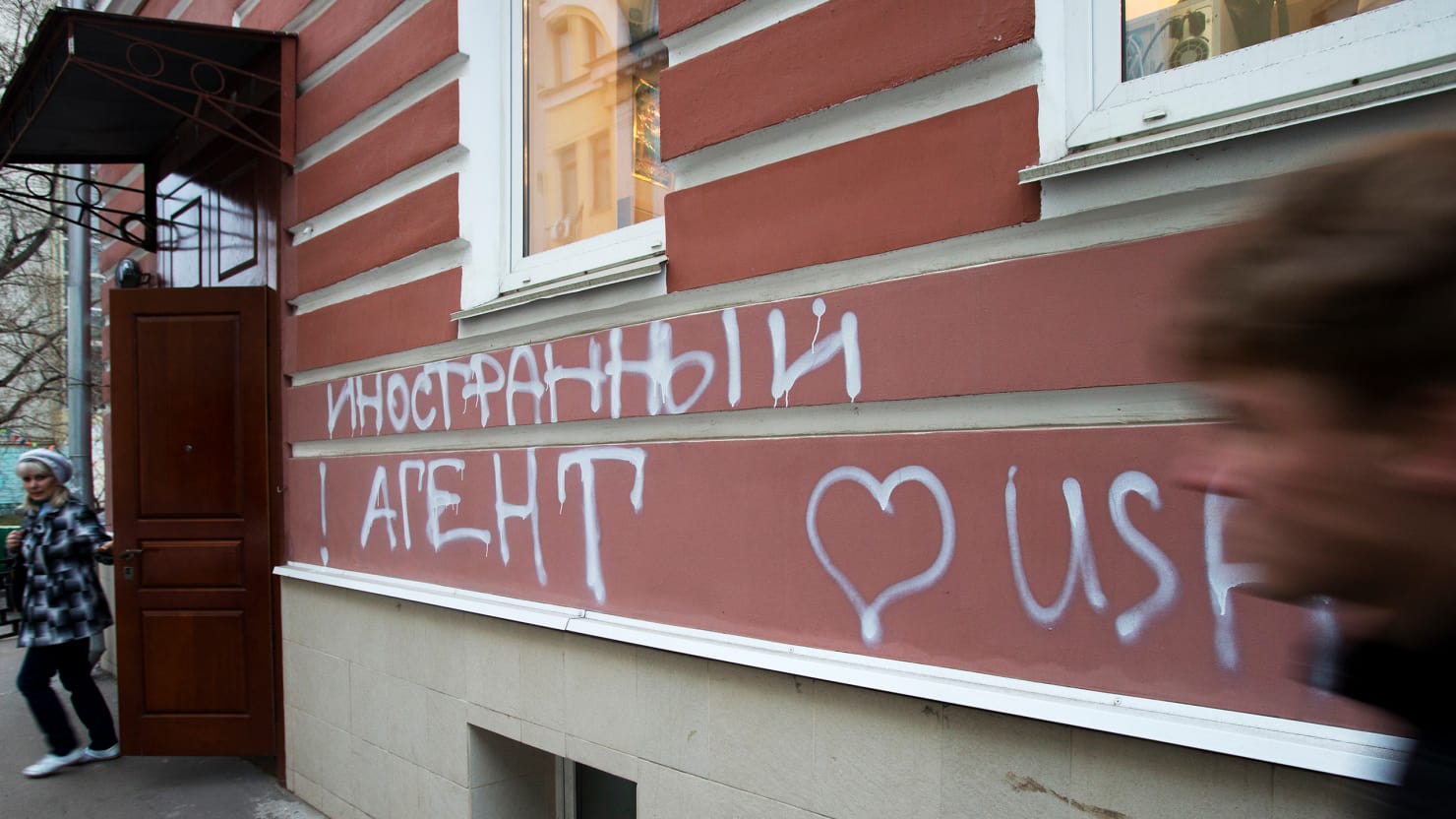
“Foreign agent”. In 2014, to further minimise perceived Western influence in Russia, Vladimir Putin‘s regime declared that those non-commercial organisations NPOs, which were engaged in vaguely defined political activities and received foreign funding, were obliged to register as “foreign agents’ – a term, which in Russian language is almost an equivalent to “foreign spy”.
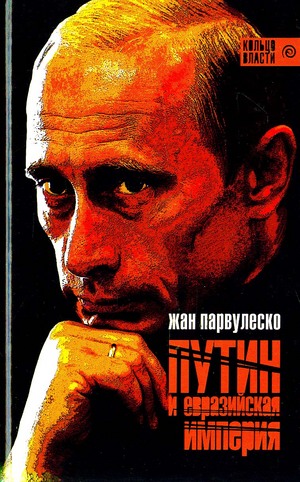
In his book Putin and the Eurasian Empire (2005, Russian edition 2006), French New Right conspiracy theorist Jean Parvulesco wrote that Vladimir Putin’s “dialectically envisaged rise to supreme power” signified “the renewal and simultaneously overcoming of the entire pre-Soviet and Soviet path of Russia”.
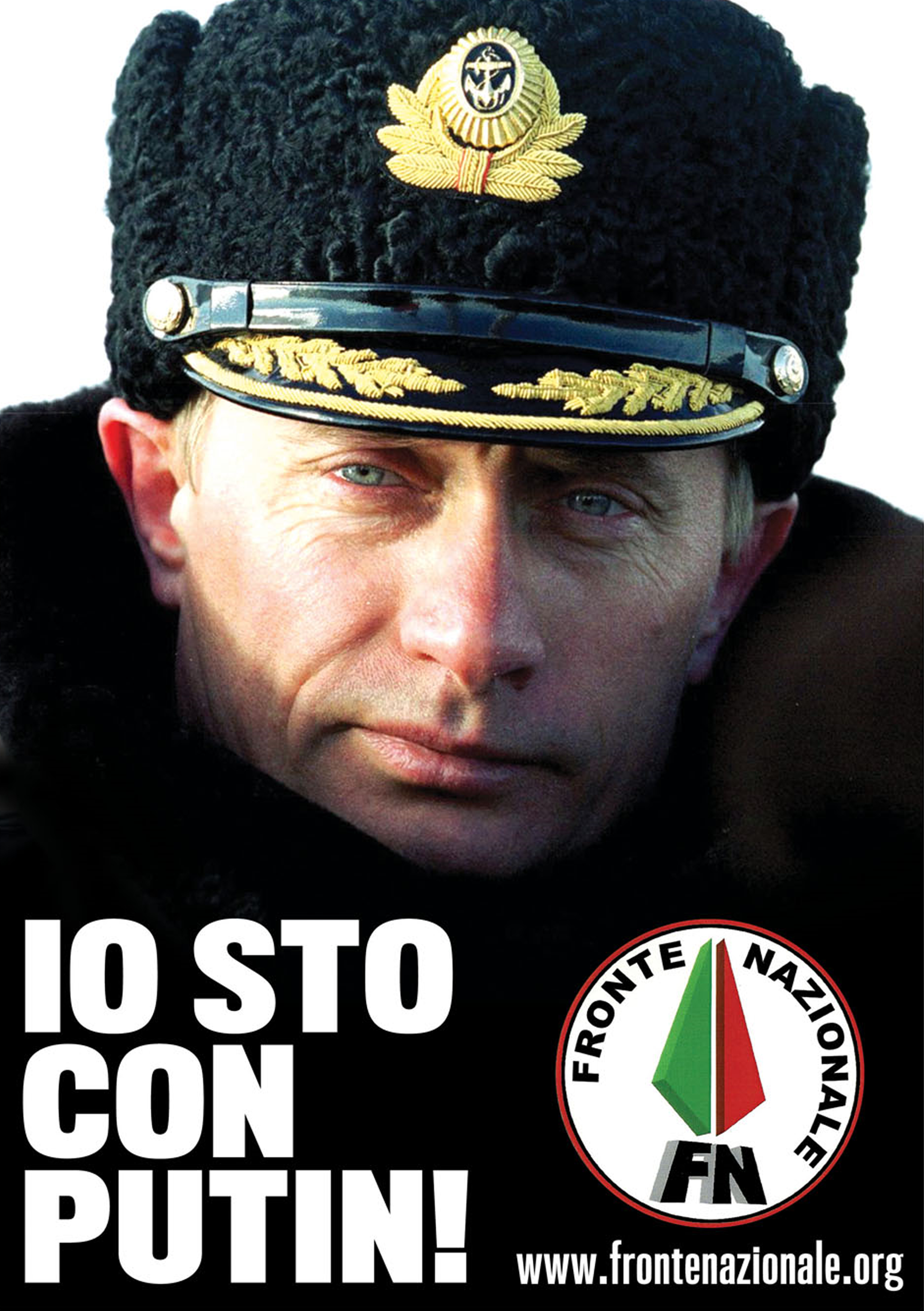
The Italian far-right National Front supported Vladimir Putin for his “courageous position against the powerful gay lobby” through dozens of posters in Rome announcing “I am with Putin!”.